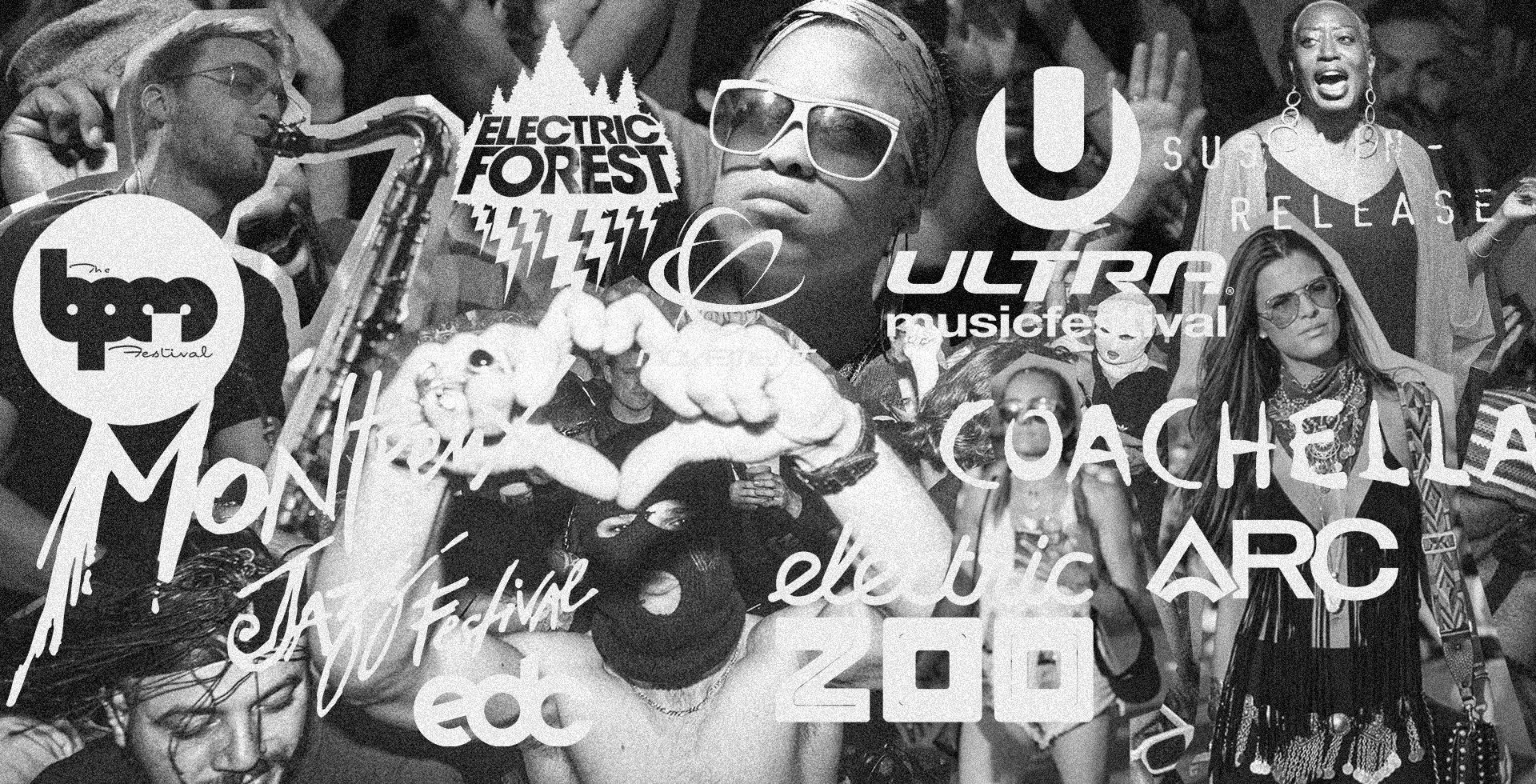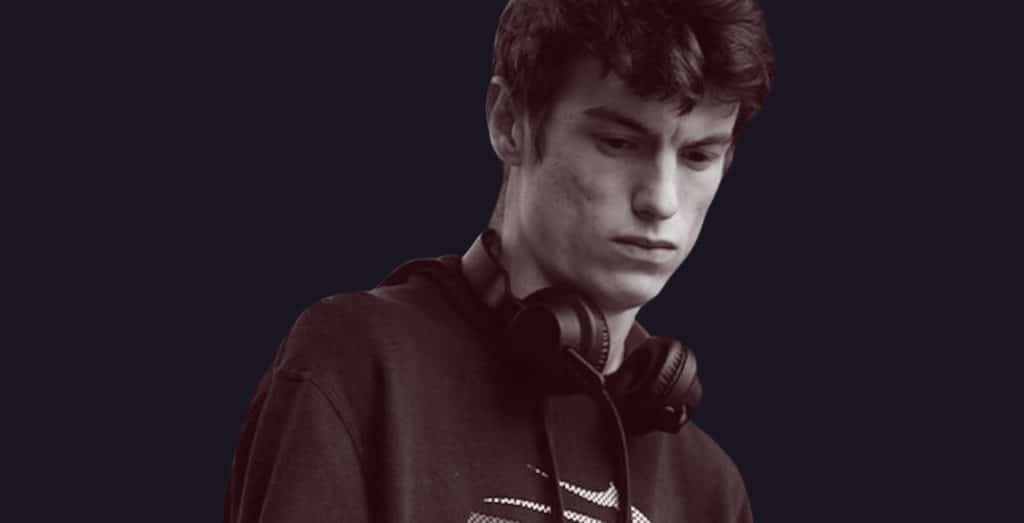By Arielle Lana LeJarde

The Genre Elitism Fallacy
Draaimolen is just Sustain Release for heads who say Making Time is Portola for heads whose North Coast is ARC.
“HEAD TO HEAD” is a HEADS KNOW column in which culture journalist Arielle Lana LeJarde dissects popular discourse in electronic music and nightlife.
I might be a bit snobby about music sometimes, but I know where I came from…and it’s EDM. I’ve been the one trading kandi that I stayed up making the night before, getting custom-made jerseys of my favorite DJs, and going to my fair share of EDCs and Electric Zoos. I’m not proud of all of it, but I can’t ignore my roots.
Living in an insular scene like New York’s electronic underground, it’s easy to get lost in chasing what’s “cool” — although I’m not scared to admit I still like to indulge in an Avant Gardner event from time to time — to the point it gets overwhelming.
The genre elitism fallacy can be especially apparent during festival season. Although it’s meant to be a time where you can catch your favorite artists with like-minded music lovers, a festival can go from being considered the most exciting event of the year to being called the corniest gathering in a matter of months. I’ve seen it happen with Electric Forest, Portola, and even Sustain Release. I’m not sure if that’s because the vox populi is just that fickle, because my tastes are always developing (so my social media algorithm follows suit), or a mixture of both. It could also be the age-old trope: When something gets popular, it’s not cool anymore.
I’ll be the first to confess that I can get caught up in trying to maintain a status of being “in the know.” When I went to ARC Music Festival in Chicago over the summer, there were times I held back from talking about it because the lineup was more EDM-leaning than I would have liked. Ironically, attendees of North Coast, an American bass music festival that takes place on the same weekend, scolded ARC for its perceived pretentiousness shortly after both events ended. On September 4th, a now-deleted tweet about ARC banning pacifiers from the festival grounds sparked a debate in the EDM community: Bass music fans felt house music lovers were too judgemental and house heads suggested the bass scene needed to grow up.
Discourse in the underground can be just as petty. In August 2023, Skee Mask tweeted: “Underground music festival and 95% of the lineup is dropping some commercial bullshit mashup/edit of whatever songs they heard on the radio when they were still shitting their pants.” Although the post was seemingly in response to video clips from that year’s Dekmantel, the community countered with mention of Jersey Club, a genre that often provides dancefloor staples despite being underappreciated in the techno-centric scene. (Skee Mask later said, “people should play whatever they want.”)
While Four Tet might have no problem playing ISOxo and Autechre within 30 minutes of each other while wearing a bucket hat at Bonnaroo, other artists have struggled with the perception of their music. I’ve spoken to lengths with artists like Hudson Mohawke about the ramifications of trap music’s rise in popularity and QRTR, who felt stuck in a strange purgatory between the underground and the mainstream.

Last year, I sat down with WTCHCRFT and asked him about his transition from wave and trap to techno. “I wasn’t ever worried about [not being accepted into the techno crowd],” he said. “I just thought: I’ll make what I want to make and I think it’s gonna be good. So I’m just gonna make it.”
For the most part, genre elitism is subjective and arbitrary, but that’s not to say there isn’t value in having a more nuanced and informed perspective on your music consumption. People who educate themselves on the genres they listen to will naturally be led to their intersectional roots. And once you start digging past electronic music’s commercialized surface, you’ll come to find a world of diverse music communities to support.
Second Opinion
Written by RamonPang
I feel like genre elitism naturally stems from fear, anger, and disappointment. Fear of being wrong about the music you love. Anger that times and culture are changing without your approval. Disappointment that the “new” ravers, festival-goers, or promoters don’t consider an artist or genre as important as you do. Because the music we emotionally resonate with is so tied to our sense of self, a changing scene can feel like either a welcome shift or a deeply unwanted attack.
Genre elitism often shows up in messy, complicated ways, especially when groups of party-goers with completely different expectations and values collide — each tied to electronic sub-genres with their own distinct origins and ethos. It’s easy to get defensive, particularly when you feel like culturally significant contributions from marginalized groups are being overlooked, misrepresented, or disrespected out of ignorance. Take, for example, festival circuit EDM artists marketing themselves as “techno.” What could they possibly do to satisfy techno’s elder gatekeepers? Play “cooler,” more understated music? Avoid being too flashy for the cameras? Adopt the stoic, no-nonsense vibe of Detroit or Berlin’s techno pioneers?
But what if fans at these festivals just want to be blown away by some big, hard-hitting techno kicks? Is that inherently wrong? Maybe you’d argue that it’s fine—as long as they don’t call it “techno.” It feels like a battle to preserve the genre’s dignity, but one that often ends up being more symbolic than practical.
From an artist and music-making perspective, it’s interesting in my little corner of the scene. Among the “IDM” crowd, most have either dismissed this whole debate entirely or aren’t even aware it exists — because they’re too obsessed with the craft. Speaking of cool and collected, Skee Mask’s tweet about the explosion of pop edits in 2023 makes perfect sense for him. He’s like the final boss of what a techno elitist wants every artist to be: no nonsense, no social media presence, and absolutely no pop edits. He’s eclectic while staying “cool,” just popular enough that seeing him live feels possible but still rare. I respect him massively — he’s a beast behind the decks and in the studio.

That said, I know I’m not Skee Mask. I share some of his influences and even a lot of his “elitist” takes, but his cool and lowkey persona isn’t me. I’ve had moments where I worry that people expect me, as an “IDM” artist, to fit into that no-nonsense mold and feel disappointed when I’m funny on Twitter or post about loving an ISOxo song.
Trap music is a whole different story. Recently, I caught myself slipping into elitism—publicly, no less. I posted on r/trap regarding where the diversity in EDM trap music’s sound and style has gone, that became the most upvoted and commented post of the week. I did my best not to sound like an old man yelling at the clouds here, even though I personally yearn for a time when electronic trap was more experimental, and more about throwing ass than about moshing. The reaction was mostly positive thankfully, and many were even respectful of EDM trap’s history in hip-hop.
It all really clicked for me when a Gen Z commenter respectfully said that he didn’t understand RL Grime’s “Core”, a massive trap anthem that was an integral, inescapable part of my festival experience. I had to accept that “trap” now means something different to me than the post-pandemic crowd. It was my first real am I getting old? moment — and it stung.
I come to peace with it all (and most DJ discourse nowadays) with this mantra: different DJs for different parties with different crowds. If you don’t like a party, go throw your own or find one that matches your mood. At the end of the day, music enjoyment (the kind that changes you) isn’t about winning cultural battles or proving how ‘in-the-know’ you are. Am I going to write on my gravestone that I was “right” about what ‘real trap’ was? That sounds kind of pathetic. If I ever get to that point, it’ll mean I’ve let the thrill of being “right” about music overshadow the real joy of sharing it with others.
Arielle Lana LeJarde – Bio
Arielle Lana LeJarde is a Brooklyn-based culture writer, DJ, and the founder of HEADS KNOW. Find her on Twitter or at her next party.


